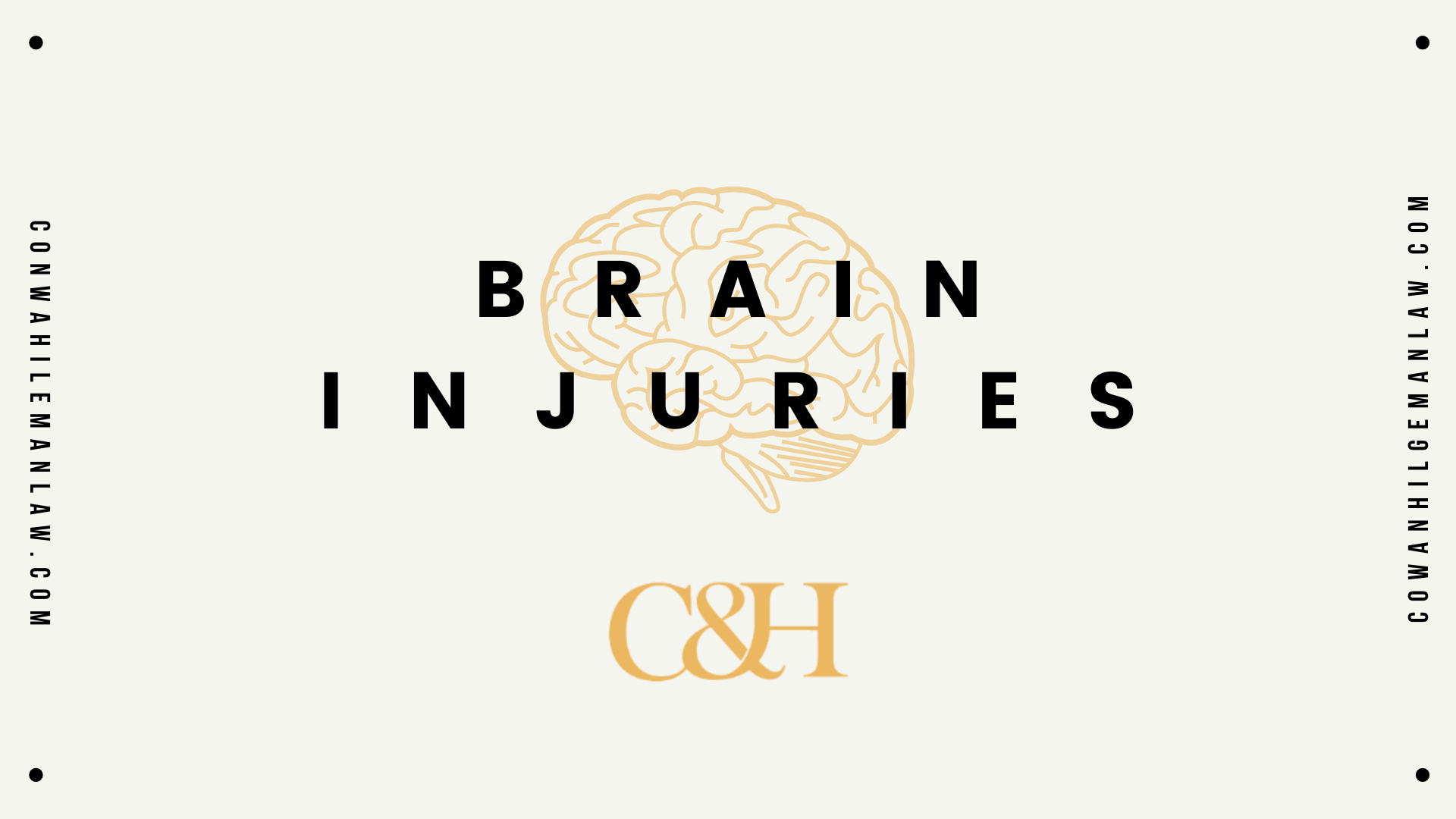A brain injury can have a dramatic effect on the persona suffering from it. Typically, a brain injury is considered to be an injury that happens after birth and isn't hereditary, congenital, or degenerative. According to the Brain Injury Association of America, brain injuries can lead to “an impairment of cognitive abilities or physical functioning. It can also result in the disturbance of behavioral or emotional functioning.” Since the impact of brain injuries effects are far reaching, it is important to know what makes up a brain injury.
There are two main types of brain injuries: Traumatic Brain Injury (TBI) and Acquired Brain Injury (ABI).
Traumatic brain injuries are those that are caused by an external physical force to the head, such as a bump, a blunt force like a blow, or any type of jolt to the head.
They can break the skin and be "open" (penetrative), or leave the skin intact and be closed. These types of injuries can range from very mild (a football player getting a minor concussion on the field) or become severe (Like the rod through the skull of Phineas Gage that caused major personality changes) but in either case should not be treated lightly.
TBI can be caused by:
- falls
- car crashes
- assaults
- sports related injuries
- abusive head trauma
- gunshot wounds
- domestic violence
- child abuse
- military trauma (blasts from explosives).
According to the CDC "about 75% of TBIs that occur each year are concussions or other forms of mild TBI." Beyond that, they state that incurring two or more mild TBIs in a short period of time (days or weeks) can be fatal.
An Acquired Brain Injury is a change in brain functioning or pathology as a result of internal factors, such as a lack of oxygen for any period of time.
They can be caused by:
- stroke
- seizures
- electric shocks
- infectious diseases (meningitis, encephalitis)
- tumors
- toxic exposure
- metabolic disorders
- Neurotoxic poisons (eg. carbon monoxide or lead exposure).
Both TBIs and ABIs can cause changes in functioning of the brain.
Common symptoms include:
- difficulty in short term functioning of the brain such as processing effectively
- understanding and expressing emotions
- difficulty with language.
Long term effects can result in increased health care costs, the potential to suffer from epilepsy, increased chances of Alzheimer's and Parkinson's disease, and the risk of other brain conditions.
If you know that you have suffered from a brain injury (or think you might have), there are several easy steps you can take to aid your recovery. The first and most important aspect is to take it easy - give your body time to heal, and don't rush back into your daily activities like school or work. Avoid activities that might cause you to hit your head or jolt it again. Consult with your doctor before you operate motor vehicles, bikes, or heavy machinery again - your reactions may be slower than you realize. You should also avoid alcohol until the injury has healed- it can affect the medications you take to reduce swelling. Beyond avoiding alcohol, you should check with your doctor before taking any over the counter medications as they can also have adverse reactions with your prescribed medication. Be kind to yourself, often patients with brain injuries have to re-learn skills they may have once mastered, and it can be very frustrating. Many patients find it helpful to write things down, or create reminders to help them remember.
If you are interested in finding more suggestions on how to prevent brain injuries from occurring in the first place, check out this link from the CDC: https://www.cdc.gov/headsup/basics/concussion_prevention.html
If you have experienced any of the above types of trauma and think you may be suffering from a brain injury, you should consult with a doctor right away. Don't let your symptoms progress any further. Seek help today. If you sustained your diagnosed brain injury due to the negligence or recklessness of someone else, call the experienced personal injury attorneys at Cowan & Hilgeman. Call (937) 222-2030 to schedule your free consultation today.
Source:
https://www.cd.gov/traumaticcbraininjury/outcomes.html

